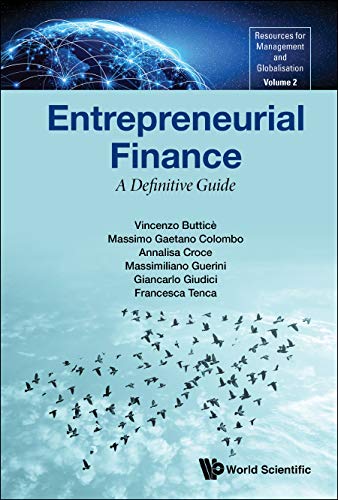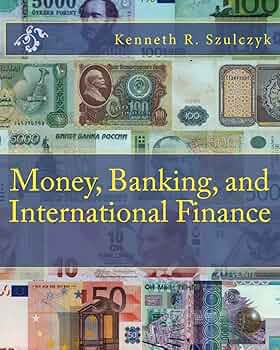Description
Managing personal finances is a vital life skill that empowers individuals to achieve financial independence, make informed decisions, and build wealth for a secure future. “Personal Finance: A Comprehensive Guide to Financial Freedom” is an all-encompassing ebook designed to provide readers with a deep understanding of personal finance concepts, practical strategies, and tools to take control of their financial lives. This ebook caters to beginners looking to understand the basics of money management and those seeking advanced techniques to optimize their finances.
Key Topics Covered:
- Introduction to Personal Finance: Start with the basics of personal finance and its significance in achieving financial security and independence. Understand vital economic concepts such as budgeting, saving, investing, credit management, and retirement planning.
- Creating a Financial Plan: Learn how to set realistic financial goals, create a comprehensive financial plan, and track your progress. Discover the importance of short-term, mid-term, and long-term goals and how to balance them effectively.
- Budgeting for Success: Understand the fundamentals of budgeting and how to create a budget that aligns with your financial goals. Learn different budgeting techniques, such as the 50/30/20 rule, zero-based budgeting, and envelope budgeting, and find the best method for you.
- Managing Income and Expenses: Explore strategies for managing your income and controlling expenses. Learn to differentiate between needs and wants, reduce unnecessary spending, and maximize your disposable income.
- Building an Emergency Fund: Discover the importance of an emergency fund and how to make one that provides a financial safety net. Learn how much you should save, where to keep your emergency fund, and when to use it.
- Debt Management and Reduction Strategies: Learn practical strategies for managing and reducing debt, including credit card debt, student loans, mortgages, and personal loans. Understand the debt snowball and avalanche methods and how to negotiate with creditors for better terms.
- Understanding Credit and Credit Scores: Gain insights into how credit works, the factors that affect your credit score, and the importance of maintaining a good credit history. Learn how to check your credit report, dispute errors, and improve your credit score over time.
- Saving and Investing for the Future: Explore the principles of saving and investing to grow your wealth over time. Learn about investment vehicles such as stocks, bonds, mutual funds, ETFs, and real estate. Understand risk tolerance, asset allocation, and diversification strategies to build a balanced investment portfolio.
- Retirement Planning and Building Wealth: Understand the importance of early retirement planning and how to choose the proper retirement accounts, such as 401(k)s, IRAs, and Roth IRAs. Learn how to calculate retirement needs, estimate Social Security benefits, and build a sustainable retirement plan.
- Tax Planning and Optimization: Learn how to manage your taxes effectively and minimize tax liability. Understand the basics of tax brackets, deductions, credits, and tax-advantaged accounts. Explore tax-saving strategies for individuals and families.
- Insurance and Risk Management: Discover the importance of insurance in protecting your financial future. Learn about different types of insurance, including health, life, auto, home, and disability insurance, and how to choose the right policies for your needs.
- Building Wealth with Real Estate: Understand the basics of real estate investing, including buying, selling, and renting properties. Learn about real estate financing, property management, and the risks and rewards of real estate investments.
- Estate Planning and Wealth Transfer: Learn the essentials of estate planning, including wills, trusts, power of attorney, and beneficiary designations. Understand how to create a plan that ensures your assets are distributed according to your wishes and minimizes estate taxes.
- Financial Planning for Families and Children: Explore strategies for managing finances for families, including saving for education, managing childcare costs, and teaching children about money. Learn how to plan for significant life events such as buying a home, having a child, or caring for aging parents.
- Overcoming Financial Challenges: Understand common financial challenges such as job loss, medical emergencies, divorce, or economic downturns. Learn how to prepare for these situations and develop a financial recovery plan.
- Mindset and Behavioral Finance: Discover the psychology of money and how your mindset affects your financial decisions. Learn how to cultivate healthy financial habits, overcome lousy spending habits, and develop a mindset toward financial success.
- Digital Tools and Resources for Personal Finance: Explore the best digital tools and apps for budgeting, saving, investing, and managing debt. Learn how to leverage technology to automate your finances and stay organized.
- Real-Life Case Studies and Examples: Gain inspiration from real-life case studies and examples of individuals and families who have successfully navigated financial challenges and achieved financial independence.







Iliyasu –
“This book is an indispensable guide to navigating the complexities of personal finance. Its clear and concise explanations, practical advice, and actionable steps empower readers to take control of their finances, achieve their financial goals, and secure their financial future. With its breadth of knowledge and insightful guidance, this book is an invaluable resource for anyone seeking to improve their financial literacy and build a solid financial foundation.”
Ya –
“Personal Finance” by [Author’s Name] is an invaluable guide for managing your finances effectively. It provides practical advice and actionable steps to help you create a solid financial foundation, achieve your financial goals, and live a more fulfilling life. The book demystifies complex financial concepts, making them accessible to everyone, regardless of their knowledge or experience level. The author’s engaging writing style and real-life examples make the journey towards financial well-being both informative and enjoyable.
Glory –
“This book is an invaluable guide for anyone looking to take control of their finances. Its straightforward approach and practical advice make it easy to understand and implement. The author provides clear explanations of complex financial concepts, empowering readers with the knowledge they need to make informed decisions. I highly recommend this book to anyone who wants to improve their financial literacy and achieve financial freedom.”
Rasaq –
“Personal Finance” is an invaluable guide that empowers readers with essential knowledge and practical strategies for managing their finances responsibly. It provides clear and concise explanations of complex financial concepts, helping readers understand budgeting, investing, and wealth management. The author’s insights and practical advice have enabled me to make informed decisions about my finances, reduce debt, and build a solid financial foundation. Highly recommended for anyone seeking to take control of their financial future.”